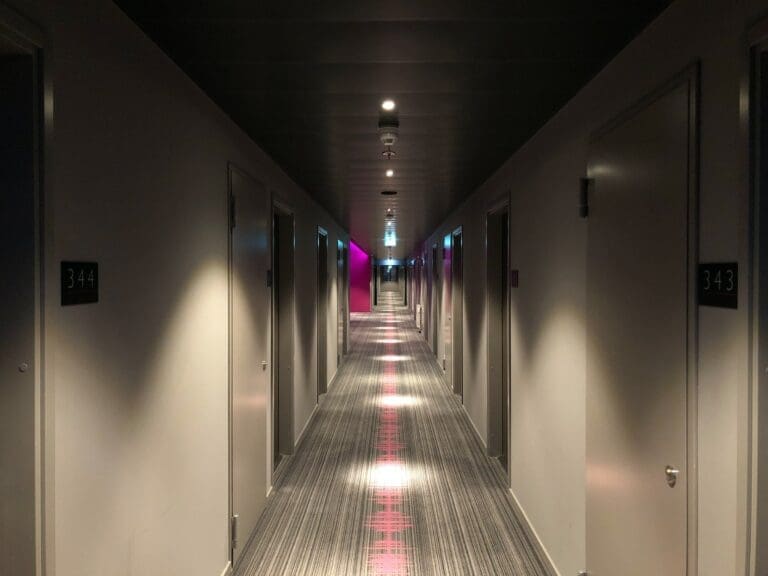 History has a habit of repeating itself in the hospitality sector. First, a new property enters the market to great fanfare, attracting customers based on the quality and novelty of its product—building a loyal base over time. Then, before anyone realises, a few years pass and the hotel is no longer the shiny new thing in the market and another property opens on the same street. Suddenly the new property instigates an aggressive discounting policy to attract new business and carve out market share at the expense of neighbouring properties.
History has a habit of repeating itself in the hospitality sector. First, a new property enters the market to great fanfare, attracting customers based on the quality and novelty of its product—building a loyal base over time. Then, before anyone realises, a few years pass and the hotel is no longer the shiny new thing in the market and another property opens on the same street. Suddenly the new property instigates an aggressive discounting policy to attract new business and carve out market share at the expense of neighbouring properties.
So what should you do if your hotel finds itself in this situation? How can you capture demand when your hotel is no longer the hot new thing on the market? How can you compete with newer properties and their aggressive sales and marketing tactics?
Don’t chase cheap business, focus on your property’s strengths
It may sound counterintuitive, but sometimes the best way to engage with an aggressively discounting new hotel is to not engage with any discounting at your property and instead focus on maximising your hotel’s average daily rate (ADR) and the value of its hard-earned brand reputation. Under an ADR-focused strategy, hotels let the competitor fill their newly opened property with cheaper business and not look to engage, or compete, directly with this property on price alone. To help address a new property’s aggressive discounting, without discounting yourself, hoteliers will need to invest time and effort into targeting specific customers where they have a better chance of winning against a competitor. Established hotels can also engage their properties’ existing loyalty program or client base, focusing on the value-add offers to attract business, rather than pricing discounts.
To properly establish your hotel’s competitive difference, a thorough strength, weakness, opportunity, and threat (SWOT) analysis of the new competitor by market segment should be undertaken. Recognising opportunities to deliver more value is a more effective strategy in revenue management than simply focusing on competitors’ prices. Established properties briefly hold a competitive advantage in the number of reviews over new hotels. Capitalise on this advantage by prominently showcasing these reviews.
That said, if a new competitor is undercutting you every day, is that necessarily a bad thing? On days when your hotel doesn’t require lower-rated business, it might be strategically beneficial to let the newcomer absorb the demand at that lower price point. By taking these lower-rated guests, it gives them less rooms to sell at higher rates and allows your higher-rated hotel to secure more premium business. On days when attracting lower-rated business is necessary, focus on creating value and experiential promotions. These should differentiate your property beyond just pricing. Hotels should create length-of-stay discounts over softer days or upgrade its lead-in room type to premium (typically lower-demand) room types with complimentary or discounted rates to ensure you capture incremental revenue that is not displacing better business or negatively affecting your RevPAR.
Maximise and leverage positive guest experiences
New properties can’t match established hotels in one key area: years of positive guest experiences and the resulting trust and loyalty from guests. Established hotels should be continually fostering positive guest visits through providing personalised experiences by leveraging guest data from previous stays, preferences, and feedback. Tailored services and amenities can make guests feel valued and more likely to return, boosting occupancy in the long run.
Hotels should then leverage positive guest experiences by encouraging them to leave reviews on popular review platforms such as TripAdvisor and Google Reviews. Positive reviews can significantly impact potential guests’ decision-making process, leading to increased booking conversion. Hotels should also use reviews to monitor property performance and address any negative feedback promptly, sincerely, and professionally, demonstrating your commitment to guest satisfaction.
Renovate and reposition
Hotel refreshes are costly and can result in a whole or partial closure of a business. For this reason, it can seem like there is never a good time for a hotel to undertake a renovation project. However, major hotel building works should be undertaken when a property needs to be upgraded to maintain its revenues and defend its fair market share against new property openings. When there’s a prolonged decrease in room occupancy that’s not due to price increases or other controllable factors, it’s a clear indicator to consider investing in renovations.
Major renovations involving full-property shutdowns can help a hotel raise rate premiums resulting from positive online reputation scores from new room products. However, such a large-scale project and disruption to the business should always be accompanied by a repositioning exercise. If a hotel decides to carry on with business as usual following a renovation, then customer satisfaction may increase due to the newly redesigned property, but revenues and profits will not rise in line with customer satisfaction rates. It is essential that detailed market position and pricing analysis is conducted, re-evaluating the competitive set and market position after the renovation, and examining the potential for more aggressive upward pricing based on the impact of renovations. This exercise should take place prior to any major investments focusing on a price versus value equation to help determine ROI of the renovation.
A renovation offers the potential for more aggressive pricing, changed segmentation, and should include a new forecast methodology as a result of the impact of renovations in relation to the hotel’s new market position and competitive set. To take full advantage of room renovations, hoteliers also need to look beyond generating short-term positive guest feedback and consider if the renovation warrants a reclassification of room types. Often, this reconfiguration can create an entirely new room type and allows hoteliers to rethink their customer positioning.
Focus on your property’s own strengths and unique offerings
For established hotels facing competition from new properties, focus should shift from competing on price to leveraging your hotel’s own strengths and unique offerings. Leveraging years of positive guest experiences, encouraging reviews, and tailoring services to boost guest loyalty are crucial. Additionally, renovations allow properties to strategically reposition themselves in the market. These steps not only differentiate the hotel from newer competitors but also strengthen its long-term market position by focusing on value and guest satisfaction.
For more information on how your hotel can compete with new properties entering the market, please visit: http://www.ideas.com





















